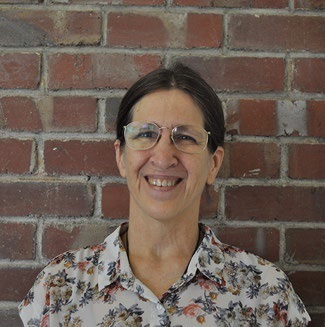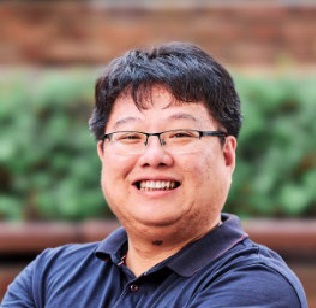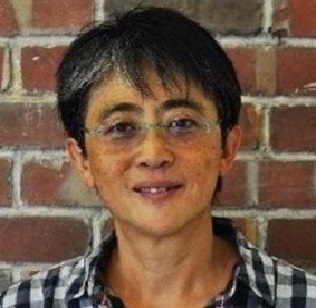COURSE OBJECTIVES
The programme aims at providing students with a comprehensive overview of key socio-cultural trends, changing issues, and important developments in Singapore as one of the world’s most competitive and developed economies and societies in Asia.
By focusing on topics relating to demographic change, ethnicity, gender, healthcare, cultural globalization, and tourism, students will gain an in-depth knowledge about, and enhance their ability to develop important analytical skills in, understanding the challenges and opportunities in contemporary Asia.
All the instructors are experienced faculty members in Department of Sociology and Anthropology of the National University of Singapore (NUS), one of highest ranked universities in the world.
HIGHLIGHTS
The courses would be beneficial to students with interests in various topics within the Social Sciences, such as ethnicity, gender, social developments, work, economics, history, and the media.
Who Should Attend
Undergraduate students from social sciences.
Pre-Requisites
Participants are expected to be able to read, write and communicate in English, as the programme will be conducted in English.
There are no subject-matter specific pre-requisites.
Programme Schedule
For individuals interested in NUS SCALE Youth programmes, please click here to enquire.
For schools/companies interested in customised and/or group bookings, please click here.
Mode of Delivery
On campus.
Mode of Assessment
Group Project Presentation.

Associate Professor MARIBETH ERB
Department of Sociology and Anthropology, NUS Faculty of Arts and Social Science
Associate Professor MARIBETH ERB obtained her PhD in Anthropology from Stony Brook University, and has been a member of the Department of Sociology and Anthropology since 1989. She has taught a wide range of courses on tourism, the environment, theme parks and qualitative research methods. Her recent publications include Theming Asia: Nature, Culture and Heritage in a Transforming Environment (Routledge, 2018), and Sailing to Komodo: Contradictions of Tourism and Development in Eastern Indonesia (Austrian Journal of Southeast Asian Studies, 2015).
She has been doing extensive research in Eastern Indonesia since the early 1980s on a variety of topics that have informed and intersected with her teaching, especially on tourism developments and changing ideas of hospitality; mining, the environment; and local conflict.
Her research work examines how the growth of tourism, tourist-local interactions and changing ideas of hospitality exert significant change to controls over tourism businesses and the impact on the environment. She is particularly interested in exploring the recent expansion of the extractive industries and emerging conflicts between local communities, government and mining companies over these environmental impacts and access to land.

Associate Professor FENG QIU SHI
Department of Sociology and Anthropology, NUS Faculty of Arts and Social Sciences
Associate Professor FENG QIU SHI received his doctoral degree from Duke University, and is Deputy Head of the Department of Sociology and Anthropology, and Deputy Director of the Centre for Family and Population Research (CFPR) in the National University of Singapore. He is also Vice President of the Population Association of Singapore (PAS). His research fields are aging and health, population studies, and economic sociology.
He has published extensively in these fields and is particularly interested in trying various methods, such as multivariate statistics, simulation-based projection, experiment, as well as comparative/historical, and ethnographic approaches. He has been teaching social research methods and social statistics at undergrad and grad levels for more than two decades.
He is the Associate Editor of Asian Population Studies, Deputy Editor of International Journal of Population Studies, and also serves on the editorial boards of a few prestigious international journals and book series. His research has been supported by the United Nations Population Fund (UNPF), the Singapore Ministry of Education (MOE), and the National Medical Research Council (NMRC).

Associate Professor HO SWEE LIN
Department of Sociology and Anthropology, NUS Faculty of Arts and Social Sciences
Associate Professor HO SWEE LIN has done research and published extensively on urban transformations in Asia; fieldwork methods; global financial markets; financialization of daily life; the global flows of Asian popular culture; emergent corporate cultures; changing labour practices; the commercialization of intimacy; political economy of sexuality; and social formations of gender. She worked for two decades in China, Hong Kong, Japan, Singapore, and the UK – as auditor, financial journalist, and corporate executive – before receiving her MA in Comparative Culture at Sophia University (Japan), followed by MSc and PhD in Social Anthropology at the University of Oxford.
Before joining NUS, she conducted studies as a Korea Foundation Research Fellow on the gendered selfhood, nationhood, and cultural identities through the globalization of South Korean popular culture, and later taught at The Catholic University of Korea.
Her current research on the political economy of the global classical music industry extends her studies of the neoliberal transformations of work in East Asia, by examining state production and promotion of talent, creativity, and passion to propel economic growth and become global cultural hubs; and the challenges they present to individuals in pursuit of professional careers within the classical music industry.
Dr. LOU ANTOLIHAO
Department of Sociology and Anthropology, NUS Faculty of Arts and Social Sciences
Dr. LOU ANTOLIHAO received his PhD in Sociology from NUS. He specializes in comparative-historical sociology, sociology of development, and sports studies. Lou has held academic and visiting appointments in the Philippines (Ateneo de Manila University), Japan (Kyoto University), Singapore (ISEAS-Yusuf Izhak Institute), and Germany (Georg-August University, Goettingen).
His publications include Playing with the Big Boys: Basketball, Imperialism and Subalternity in the Philippines (2015), and Culture of Improvisation: Informal Settlements and Slum Upgrading in a Metro Manila Locality (2005). He has taught courses on travel, sports, social thought, social theory, the senses and the body.
Certificate of Completion
Successful participants who fulfill all program requirements, including meeting the minimum attendance and passing the assessment, will be awarded an e-Certificate of Completion and Assessment Report issued by NUS SCALE.